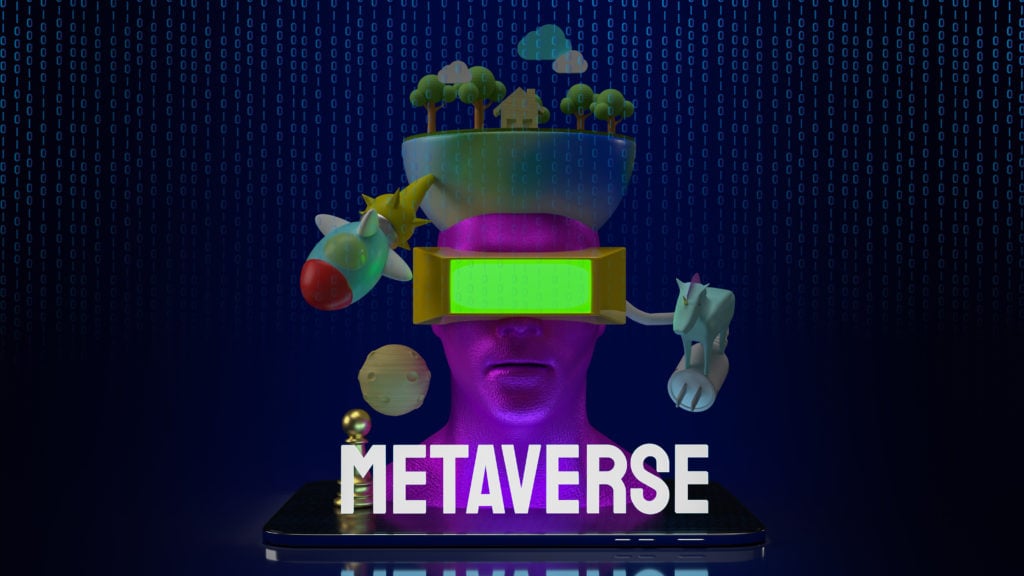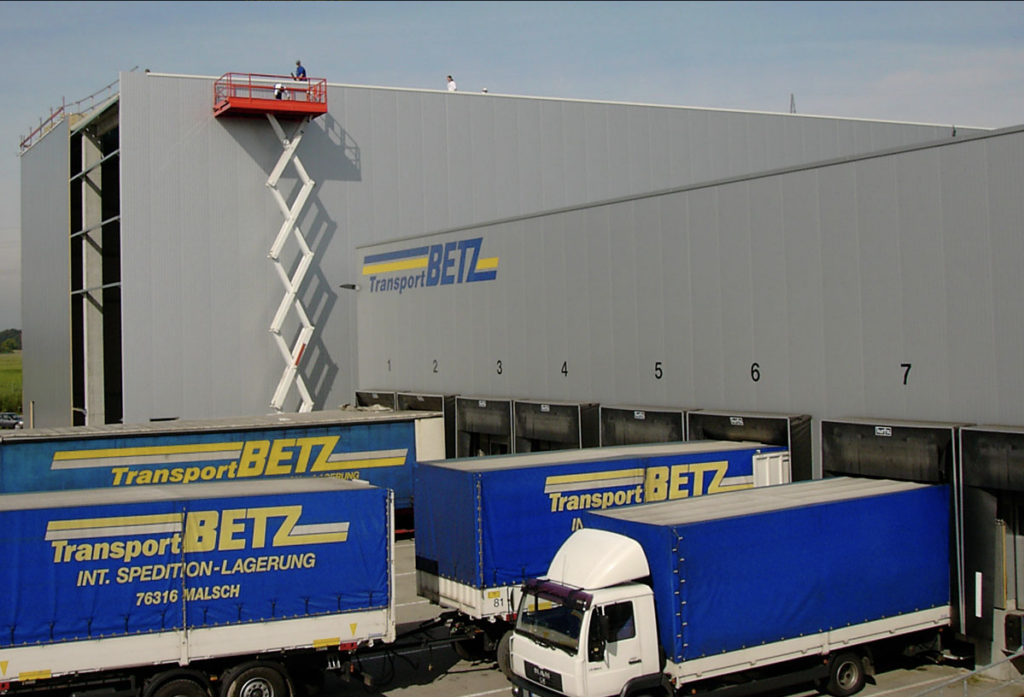
It's the latest craze from Marc Zuckerberg. Colleagues report that he is obsessed with his idea: the head of Meta, formerly Facebook, is working on a new virtual universe, the Metaverse. And although this world doesn't even exist yet, numerous clever minds are already brainstorming about possible business applications. Temporary hype? Or will the metaverse replace the mobile internet in just a few years? A stocktaking.
Meeting friends, going shopping, attending trade fairs, holding conferences or going to the movies together - all without leaving the house? This is what the brave new world of the Metaverse promises. A virtual parallel universe in which you can do pretty much everything as a digital image of yourself that is also possible in real life.
The idea is not really new: anyone who has teenage children or enjoys sitting in front of a games console themselves will know about the fascination of fighting their way through an adventure world with avatars they have created themselves and meeting friends and gaming partners from all over the world. So what exactly distinguishes the Metaverse from the virtual game worlds from the children's room? The companies driving this hype can't really explain it themselves (yet). It is supposed to be a combination of virtual reality (VR), augmented reality (AR), computer games and social media. The actors are avatars. They trade in NFTs (non-fungible tokens), digital certificates of authenticity for virtual or physical goods, and pay with digital currencies such as Bitcoin or Ethereum. The special thing about this is that it is not a game, but a copy or extension of real life. And this applies to both private and business life.
Gateway to the meta-world
A whole range of technologies are used to implement the Metaverse. First of all, there is the PC and VR glasses or AR headset. They are, so to speak, the entry ticket to the virtual high-tech world. The difference between the two technologies is that with virtual reality, the user is completely immersed in the artificial world, while the wearer of AR glasses continues to see reality, but texts, images, animations or computer-generated visualizations are superimposed in their field of vision, creating an "augmented reality", so to speak.
Neither has really caught on so far. VR headsets are the exception rather than the rule, even among gamers, and are only used occasionally by 17% of Germans according to the industry association Bitkom. The situation is even bleaker for AR headsets. There have hardly been any private customers to date. Even the AR capability of smartphones and tablets has not been able to change this so far. However, AR is now being used to some extent in industry. For example, technicians receive instructions on how to carry out certain maintenance tasks or assemble parts on a machine.
It is therefore unsurprising that widely announced VR and AR product launches, such as Google Glasses or HoloLens from Microsoft, were forgotten after a short time. Both products were taken off the market again due to sluggish demand. In addition to the limited application possibilities, the main reasons for this were a lack of standards and (too) high prices. However, the announcement of the Mataverse could turn the tide. Bitkom is expecting a significant boost for high-tech glasses. As are the manufacturers: Apple is planning its own AR headset by 2023 at the latest, and Samsung is also preparing to launch AR glasses.
No metaverse without blockchain
To ensure that our avatars can not only walk around in the virtual universe, but also trade in goods and services, one technology is crucial: the blockchain. This is a database that consists of a chain of consecutive, unalterable data packets. The special thing about it is that the blockchain is not stored centrally, but on many different computers. Everyone who takes part in a transaction saves a complete copy of the entire data history on their end device. The order of the blocks is also secured by a checksum, so that both manipulation of the data and subsequent changes to the data sequence are virtually impossible.
In addition to business applications in which unchangeable transactions must be securely documented (e.g. the temperature of a perishable product across the entire supply chain), blockchain technology also gave the go-ahead for the development of cryptocurrencies.
Digital money
Cryptocurrencies such as Bitcoin and Ethereum are traded and exchanged just like a normal paper currency. However, it is a purely digital means of payment; there are neither coins nor bills. And unlike paper currencies, cryptocurrencies are not controlled by financial institutions or the government. A digital credit balance can be transferred from one participant to another in the form of a computer code and documented in the blockchain in an almost forgery-proof manner by means of a cryptographically signed transaction.
The best-known and by far the most successful cryptocurrency is Bitcoin. It has been on the market since 2009 and has its origins in the 2007 financial crisis, when people were looking for an independent, decentrally organized monetary system as an alternative to conventional currencies such as the euro or US dollar. Bitcoin became known worldwide and quickly gained in value, so that the competition was not long in coming: Ethereum was launched in July 2015 and quickly grew to become the second strongest cryptocurrency. More than 1,000 digital payment systems are now tradable worldwide.
Smart contracts and NFTs
Smart contracts are also based on the blockchain. Due to the almost forgery-proof decentralized technology, smart contracts no longer require a third party (e.g. a notary) to ensure legal certainty. One practical example is software licensing. The user can acquire licenses quickly and easily. Conversely, the provider can use the system to automatically block defaulting customers' access to the licensed software.
The latest hype surrounding virtual trading is non-fungible tokens (NFTs). In contrast to fungible assets such as Bitcoin and other cryptocurrencies, NFTs are unique and non-fungible. NFTs provide a secure data set that is provided with a unique identification code. Once stored in the blockchain, this can no longer be changed. This confirms the originality and legitimacy of the item.
NFTs can be used to trade music, film and video clips, as well as pictures, collectible pictures and trading cards. Even virtual real estate or pets are now changing hands via NFT.
Business case wanted
So the technology is there. But will the metaverse really revolutionize the Internet, as Zuckerberg predicts? Or will there be many different worlds instead of one? Above all, what could be the initial spark?
Opinions differ widely here: the Süddeutsche Zeitung recently wrote of a "fairy tale to bring long-existing technologies to the people at a profit after all". Others describe the metaverse as THE new thing that will replace everything that has gone before. One thing is certain: if the idea is not to disappear into oblivion at some point, it needs a catalyst to get the whole thing going. In short: a business case.
The coronavirus pandemic has already provided initial impetus here. For many people, meeting up with colleagues and customers via Zoom or Teams has become part of everyday life. The metaverse could bring these virtual meetings even closer to reality by allowing our avatars to sit opposite each other "in person" at the conference table in future. Companies are already organizing virtual trade fairs at which digital copies of employees hold customer meetings and answer questions from virtual visitors. Those with a bigger budget can also invite trade fair guests to a party with a virtual DJ in the evening. Almost like in real life - but without the after-work beer.
American hotel heiress Paris Hilton caused quite a stir in this regard. At a virtual event at the turn of the year, guests were able to visit a replica of her estate in Beverly Hills, drive her sports car or take a look around her yacht. For a small amount of money, fans could even buy virtual dresses or a ride on a digital jet ski. Those who are not among the select guests of American celebrities can already visit museums virtually or view their dream property. And the metaverse could also serve telemedicine well: Patients would no longer have to go to the doctor in person, at least for the initial consultation, but could instead describe what is wrong with them in a virtual practice.
However, things will only get really interesting when the metaverse becomes a trading venue. When, thanks to NFTs, Bitcoin and co. goods and currencies change hands. The metaverse could offer companies the opportunity to sell their products worldwide in virtual stores. Customers browse and buy online as avatars, but their goods are delivered to them in the real world. Physical and digital worlds thus come together. In some cases, this is already happening. Some companies are now spending huge sums to acquire virtual properties in the metaverse. Anyone who owns such a piece of land can hold events or parties there and charge guests an entrance fee. They can build houses and rent them out for a monthly income. Or set up NFT galleries where crypto artists can present and sell their work.
A look into the ERP glass sphere
Today, the metaverse is still more of a loose collection of ideas than a finished concept. Nevertheless, ERP manufacturers who want to be among the early adopters are already thinking about how they could use the new virtual world for their own business. The fact is: if the metaverse makes the leap into the business world, ERP systems will probably also become part of this universe. Whether real or virtual, a central data hub is needed to map the company's processes - from the receipt of an order to production control and delivery. Whether a company then sells its goods in a store in Cologne city center or in a virtual mall in the Metaverse is basically irrelevant.


